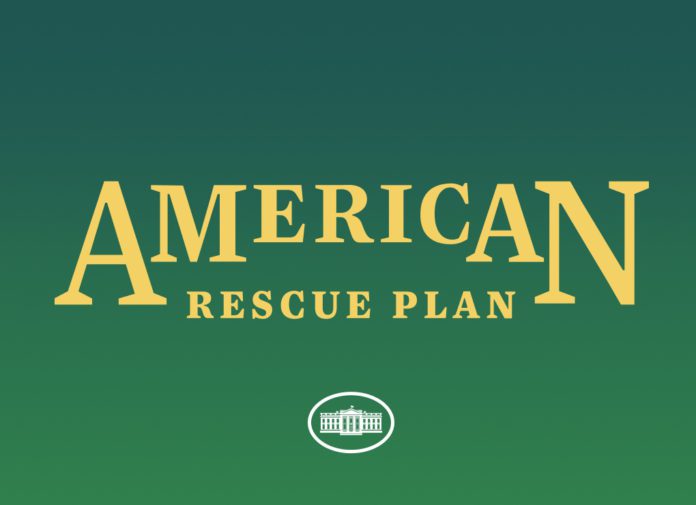by James Coleman —
Memphis City Council members had a discussion about priorities rarely seen outside budget season during their Tuesday (Sept. 7) meeting.
At issue is $161 million allotted to the city through American Rescue Plan funding and how the bundle of cash will be spent.
The push for a spending outline is part of a report that was extended past Aug. 31 to the U.S. Department of the Treasury, detailing ARPA spending and expected outcomes.
“I think the perception is, the city was granted this money and doesn’t know what to do with it. I think it’s important to make a plan. It doesn’t mean that you can’t amend your plan, as we discussed, if there is additional funding that comes down for the infrastructure or broadband…,” said Shirley Ford, chief financial officer for the City of Memphis, while presenting a resolution for consideration outlining the council’s priorities for the money.
In addition to the city’s proposal to set aside $20 million to expand broadband access, Mayor Jim Strickland’s administration also is prioritizing workforce development funding and after-school programs through the Boys and Girls Clubs.
Many of these proposals, however, are not set in stone.
Council members have made it clear they have their own set of spending priorities for the money, $13 million of which already was set aside by the administration in its ARPA pitch.
Some council members have made it clear they went the money spent in ways that will more directly benefit constituents.
A vote to settle the matter was put off. A special meeting is expected to be called before Sept. 21.
With the COVID-19 numbers spiking again with the emergence of the delta variant, there is also the cold reality of another prolonged pandemic wave heading into the winter months, as well as continued revenue shortfalls.
If that is the case, then many items dear to the administration and council members could be nixed.
“We don’t have anything in here for helping businesses, those people in the tourism industry. As things seem to be getting worse, I would be OK with us sending a report to Treasury intentionally saying ‘we haven’t decided on this’ because we don’t know how it is going to look over the next six months, definitely not the next four years,” said council member Martavius Jones, who proposed $10.7 million in assistance for small and tourism-related businesses.
The haste created by the deadline started a rush of amendments for the various priorities of council members.
Council member Jeff Warren sought to fill in the gaps of Strickland’s after-school program, which he said was weighted towards helping older kids reach graduation.
“There is another organization that I’m aware of called Communities in Schools and they sent a proposal to me to deal with the other schools that aren’t involved with the Boys and Girls Clubs. I would like to see if we could not use some of the money that we received from ARPA,” said Warren.
The contract would run for three years at just under $2.2 million per year and help an additional 22 schools. Warren also proposed an “Equity to Prosperity Program” that would place certified teachers in pre-K programs for additional education.
Together, the programs would total more than $10 million. Both would be funded by revenue replacement.
“I don’t know if there’s $10 million in our budget in the years ahead? I would hate to support something for the first three years and see it go away because there was no funding.
“I don’t know that you would do much good in the three years you funded it, if you didn’t have a dedicated funding source,” said council member J. Ford Canale.
Ford pointed out that the city has to replace lost revenue during the pandemic while continuing services.
With the reserve fund at $79 million, it is the lowest it has been since 2013. So far, bond rating agencies have not changed the city’s bond rating – the cost of borrowing money – by taking the pandemic into consideration.
That could change if the ARPA funding is applied differently.
Council member Michalyn Easter-Thomas proposed an amendment that $3 million be transferred from public safety recruitment initiatives for a grocery store in North Memphis, particularly take-home cars and signing bonuses.
“North Memphis currently has no grocery store,” said Easter-Thomas.
Council member Rhonda Logan sought a $4.6 million expansion of Hospitality Hub into her district to address homelessness. It would pull from the $20 million broadband line item the administration is seeking.
To clarify the scope of the city’s ARPA windfall – and perhaps temper expectations – the federal formula that is used to calculate how much ARPA funding is distributed was highlighted. St. Louis was used as an example.
“They received $450 million, despite having a population of less than one half of ours. They received 5.7 times per capita the amount that Memphians received. That is the strategic imperative that we have to correct here.
“Other cities, because of the formula, have a significantly grander opportunity than we do,” said city Chief Operating Officer Doug McGowen.
Defending the city’s efforts with the use of money, he said that council members may have to look to other, better-funded sources, like the state, county or the Shelby County school district.


